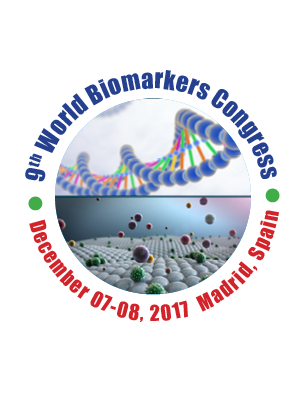
Mercedes Piedad de León-Bautista
Central adn, Mexico
Title: RhoGDI3, is this small molecular regulator key orchestring the movement and tumor mass in PDAC?
Biography
Biography: Mercedes Piedad de León-Bautista
Abstract
Pancreatic ductal adenocarcinoma (PDAC) is a complex pathology with poor prognosis. Eff orts have been focused on understanding the role of RhoGDI's in PDAC, in particular, RhoGDI1 and RhoGDI2. However, the role of RhoGDI3 has neither been studied in relation to cancer nor to PDAC. Our group have characterized the expression and functionality of RhoGDI3 and its target GTPases, RhoG and RhoB, in pancreatic cell lines and compared it to human tissue. Th rough immunofl uorescences, pull down assays, subcellular fractionation and immunohistochemistry, we found a reduction in RhoGDI3 expression in PDAC late stages, and this reduction correlates with tumor progression and aggressiveness. Despite the reduction in the expression of RhoGDI3 in PDAC, we found that RhoB was under expressed while RhoG was over expressed, suggesting that cancerous cells keep their capacity to
activate this pathway, thus these cells may be eager to the stimuli needed to proliferate and become invasive. Surprisingly, we found nuclear localization of RhoGDI3 in non-cancerous pancreatic cell line and normal pancreatic tissue biopsies, which could open the possibility of novel nuclear functions for this protein, impacting gene expression regulation and cellular homeostasis. To elucidate the possible functions of RhoGDI3 in cancer maintenance, the overexpression assays have demonstrated that increased RhoGDI3 protein increases proliferation rate; besides, the xenograft tumor was smaller compared to the mock, suggesting and predicting that overexpression of RhoGDI3 is an important molecule to constrain the tumoral volume. In conclusion, RhoGDI3 protein decreases the malignant behavior in PDAC.

